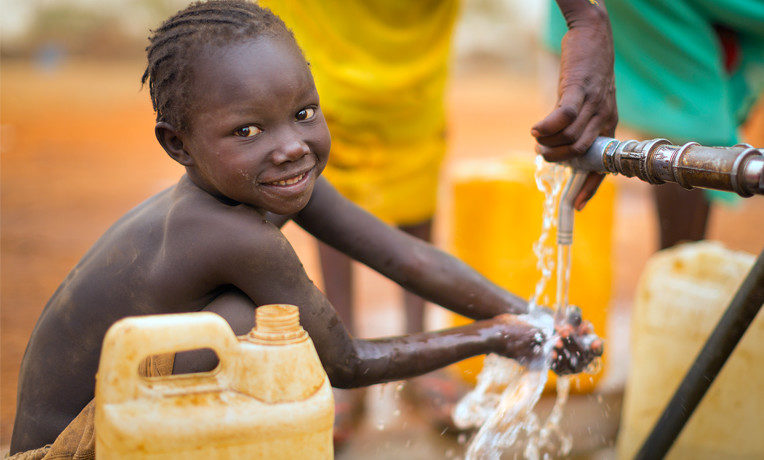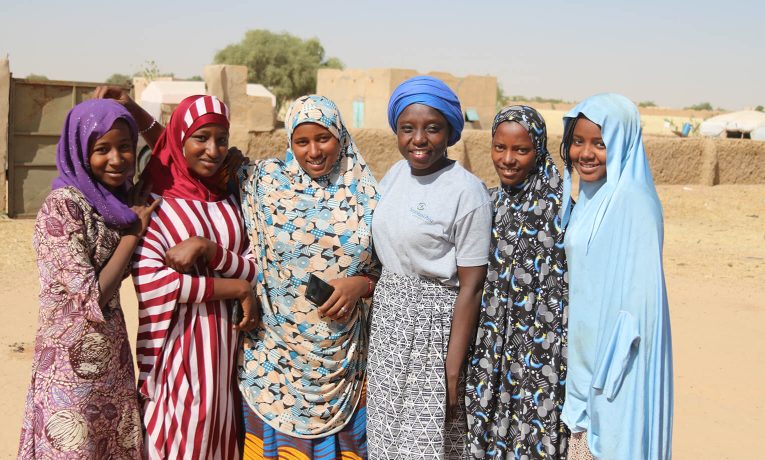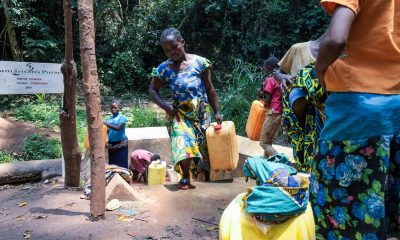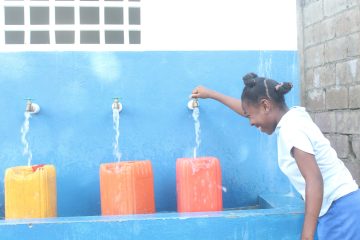Through water, sanitation, and hygiene (WASH) programs in western Niger, doors are opening for the Gospel of Jesus Christ.
During Niger’s dry season, Aminatou Ibran would wake early each morning to join the other village women on a nearly nine-mile trek to gather water for drinking, cooking, and watering livestock. At least that’s the way it was for many years.
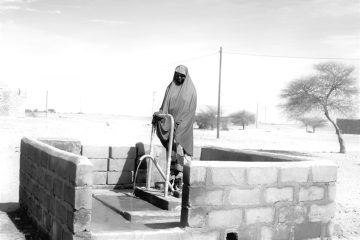
Aminatou Ibran celebrates the new well and the restoration of boreholes in her village.
Recently though life has begun to change for Aminatou, 35, and the other desert-dwelling women of Gofat—a small cluster of villages in western Niger in the unimaginably vast Sahara Desert.
Samaritan’s Purse recently started work in Niger’s Agadez region. Many villages of Gofat suffer from dying livestock and waterborne illness because they lack safe and conveniently accessible water sources.
To understand where Aminatou lives, find Niger’s capital Niamey on a map and trace your finger for about a thousand map miles east. This is where Fulani and Tuareg people eke out an existence in one of the harshest environments on earth.
For the women of the region, hours of walking in search of water would be followed by work at home: gathering wood, preparing meals, and caring for crops, children, and animals. In the rainy months, water might be a bit closer but other issues emerge.
In the rainy season, Aminatou says that rain water is more abundant, but then sanitation becomes a problem as human and animal waste contaminates water points. No matter what time of year it is, something as basic as handwashing was unthinkable with the precious water.
“Already we do not have enough water to drink. How are we to wash with the little that we have?” Aminatou said. “We drink the same water when the rain falls, but this is also where our animals drink. Regarding hygiene, let’s not even talk about that!”
A Source of Water for the Weary
But now, through our Water, Sanitation, and Hygiene (WASH) project called Living Water Source of Life, our team was able to provide a hand-dug well and also helped rehabilitate two boreholes that had not been functioning for years.
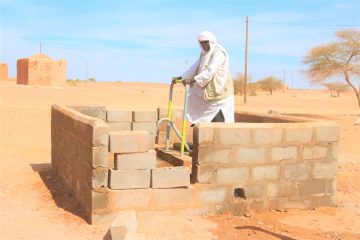
Aboubacar Amadou draws water from the borehole rehabilitated by our WASH teams.
After reliable sources of water were established, other important opportunities opened up for the village as well. Our team of WASH specialists began to teach simple strategies for guarding against illness—including handwashing and properly disposing of human and animal waste.
Additionally, families have been able to consider educating their children again—an activity that had grown increasingly rare amid the constant struggle to find water.
“We didn’t care about hygiene or going to school. Water is the source of life for every living being. In all these many years, since the founding of our village, no one has ever come to help us to have water and even less to provide water for our animals,” said 67-year-old Aboubacar Amadou. He said there was just no time to think about anything beyond survival. “Today we have the solution to so many of our problems. Now that we have water, our children can start going to school again.”
Water Helps Carry the Gospel to the Unreached
This WASH project in Gofat is only the beginning of long-term work in the Agadez region. Samaritan’s Purse Niger is focused on bringing physical and spiritual relief to the remote tribes and villages of this area where the Gospel of the Lord Jesus Christ has not been heard.
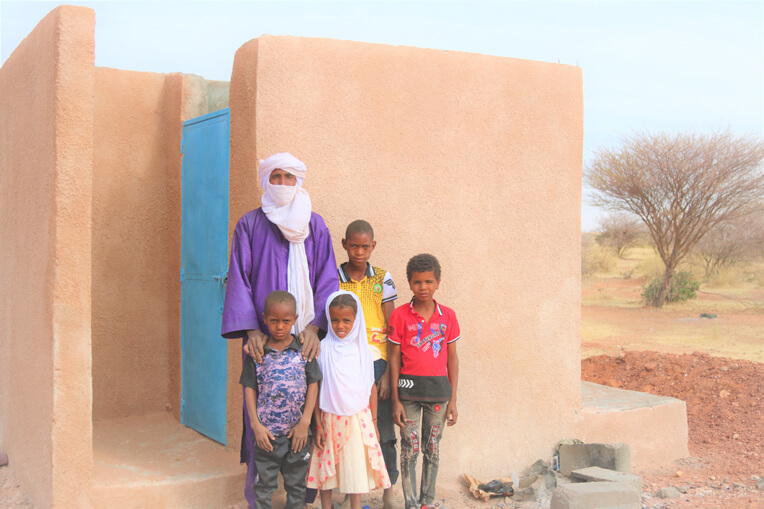
Families are excited for their children to return to school.
By providing for critical needs, such as water, food for livestock, animal vaccinations, and other essentials for survival, doors are opening for Fulani and Tuareg families to hear about the hope that God offers through His Son. Recently we distributed audio Bibles for these nomadic families to listen to Scripture in their own languages, an outreach strategy for a group that is largely unable to read.
Overall, Samaritan’s Purse work so far has been well received here in the desert. Tribal chief Mohamed Dindin said that he can see the impact of the work in the faces of families in his village.
“As you can see we are very happy and our children also are happy, because they will start to go to school,” Mohamed said.
Aminatou says that our work has given her and her family greater freedom to build a future.
“I am very moved,” she says. “I have tears of joy when I see what we are experiencing here now with the provision of water.”
